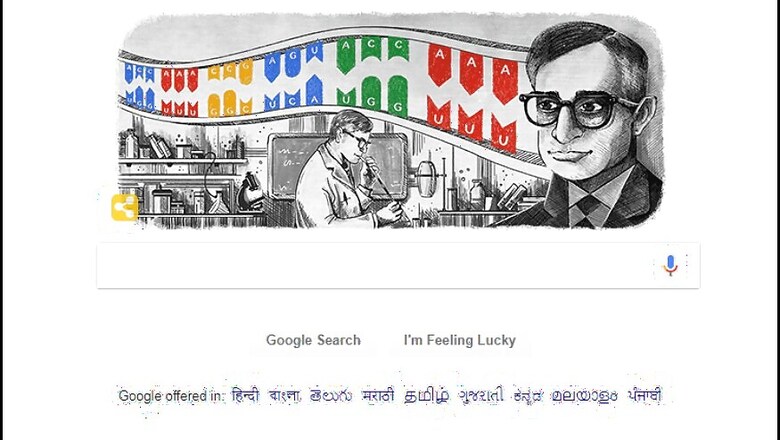
views
New Delhi: Indian-American Biochemist Har Gobind Khorana, credited with the construction of the first synthetic gene and awarded with the Nobel Prize, was born in the undivided Punjab. His village, Raipur, is now a part of Pakistan. Today, Google has honoured has drawn up a doodle in his honour to mark his 96th birth anniversary.
In his childhood during the pre-Independence era, Khorana, along with his four siblings were put in a village school, making them the only educated family in the little village.
A young Khorana attended the DAV High School in Multan and came across some teachers who left a mark on him. Later, when he went to the Punjab University in Lahore, he met other teachers and supervisors who played a crucial role in shaping up this young man from a small village.
In 1945, years before the country was to be divided right through his state, the British administration offered him a fellowship to study in England and get a PhD degree at the University of Liverpool.
Khorana soon became an expert on chemical synthesis of proteins and nucleic acids.
In 1968, Har Gobind Khorana, Robert W Holley and Marshal W Nirenberg jointly won the Nobel Prize for Physiology or Medicine for their research on genetic code and protein synthesis.




















Comments
0 comment